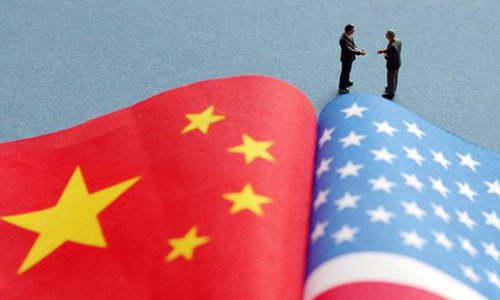HOME >> SOURCE
Trump’s trade war fails to drive investment out of China: survey
Source:Global Times Published: 2019/12/9 16:43:39

Photo: VCG
US President Donald Trump launched his trade war with China more than a year ago to, in part, force manufacturing companies into the US and drive investment out of China. If that was his goal, he has clearly failed, a survey showed on Monday.While a small number of companies have moved their production out of China - mostly to Southeast Asia and India - the same number of firms are increasing their investments in China and adopting a strategy of onshoring their supply chains to avoid tariffs altogether, according to a survey conducted by the European Union Chamber of Commerce in China.
"This calls into question the efficacy of the tariffs used by the US, which have failed to achieve their goal of driving investment out of China," read a summary of the survey shared with the Global Times on Monday.
The European Chamber's survey offers a stern rebuttal to Trump, who has repeatedly claimed that his trade war has driven businesses out of China while arguing that China wants a trade agreement more desperately than he does.
As recently as November 9, Trump claimed that China's "supply chain is all broken, like an egg. They want to make a deal. Perhaps they have to make a deal, I don't know. I don't care. That's up to them."
Trade talks for the anticipated phase-one agreement between China and the US have dragged on, as China continues to insist upon the precondition that existing tariffs must be removed, while the US has shown no sincerity in meeting China's demand and has resorted to the threat of tariff hikes.
In response to Trump's claims and threats, China's Foreign Ministry last week said that China has not set a deadline for a potential trade deal and that, if forced, it would take resolute and effective countermeasures against the US trade bullying.
However, the trade war has had a negative impact on the global supply chain and businesses, particularly small and medium-sized companies, according to the European Chamber's survey.
"The only way the US-China trade war could be considered a success is if its goal was to disrupt global supply chains at a modest cost to large corporations, while delivering a steady beating to unlucky China and US-based SMEs on the wrong side of a supply chain," the survey read.
The number of European companies in China that export to the US and have been hit by punitive US tariffs has increased from 25 percent to 35 percent of all companies surveyed. About 8 percent said they had moved or were considering moving their production out of China to avoid tariffs, but 6 percent said they have already or are considering increasing their investment in China.
The European Chamber's survey is also in line with official data that has pointed to an increase in foreign investment in China, as the country continues to open up more sectors and improve its business conditions.
In the first 10 months of 2019, China attracted a total of 752.41 billion yuan ($106.92 billion) in foreign investment, up 6.6 percent year-on-year, according to data from the Chinese Ministry of Commerce. A total of 33,407 new foreign-funded companies, or 110 each day, were established during the period.
Against persistent downward pressure from a deep transition and lingering trade tensions, China has vowed to further open up its market and improve its business climate in 2020 to woo more foreign investment. Most notably, China will implement a new Foreign Investment Law on January 1, 2020, which will guarantee greater market access and better protections for foreign investors.